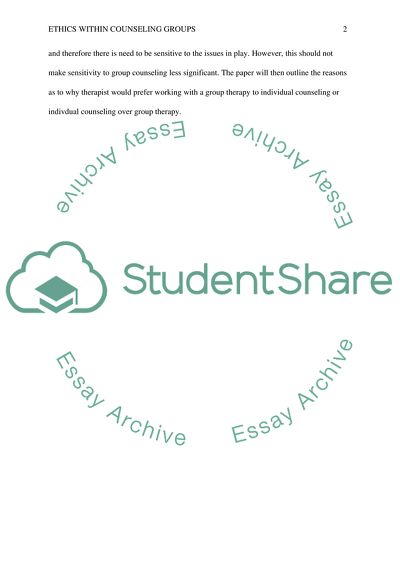Cite this document
(Ethical Issues Within Counseling Groups Coursework Example | Topics and Well Written Essays - 2250 words, n.d.)
Ethical Issues Within Counseling Groups Coursework Example | Topics and Well Written Essays - 2250 words. https://studentshare.org/psychology/1873344-ethics-within-counseling-groups
Ethical Issues Within Counseling Groups Coursework Example | Topics and Well Written Essays - 2250 words. https://studentshare.org/psychology/1873344-ethics-within-counseling-groups
(Ethical Issues Within Counseling Groups Coursework Example | Topics and Well Written Essays - 2250 Words)
Ethical Issues Within Counseling Groups Coursework Example | Topics and Well Written Essays - 2250 Words. https://studentshare.org/psychology/1873344-ethics-within-counseling-groups.
Ethical Issues Within Counseling Groups Coursework Example | Topics and Well Written Essays - 2250 Words. https://studentshare.org/psychology/1873344-ethics-within-counseling-groups.
“Ethical Issues Within Counseling Groups Coursework Example | Topics and Well Written Essays - 2250 Words”. https://studentshare.org/psychology/1873344-ethics-within-counseling-groups.


